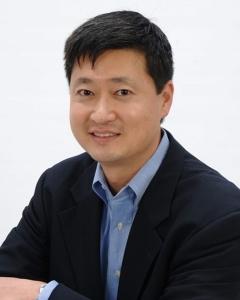event
How Flamingos Stand on One Leg and Other Reasons to Study Comparative Neuromechanics
Primary tabs
A Frontiers in Science Lecture by Young-Hui Chang, hosted by the School of Biological Sciences
ABSTRACT
Visit a flamingo exhibit at any zoo and you are likely to hear a child ask, “Why do flamingos stand one one leg?”
This basic, child-like drive to understand the curiosities of the world is part of human nature, and it is fundamental to science. But asking “why” a flamingo stands on one leg is a difficult and esoteric pursuit. In contrast, trying to understand “how” a flamingo can stand on one leg is directly addressable through physiology, the study of life’s processes. Moreover, gaining knowledge about how a behavior works often leads to important insights on why it persists in nature.
Young-Hui Chang will discuss how neuromechanics is used to distinguish biomechanical and neural mechanisms to inform our understanding of limb control. For example, the recent discovery of a passive biomechanical mechanism in flamingo legs explains how standing on one leg may actually require less neuromuscular effort than standing on two legs.
Chang will also discuss how a comparative approach helped identify a common limb compensation strategy many animals use to control and stabilize locomotion. The basic knowledge gained from comparative neuromechanics research can ultimately be used to better the human condition through development of improved training practices to enhance performance of limb prosthesis users, railroad workers, and even athletes.
ABOUT THE SPEAKER
Young-Hui Chang is a professor in the School Biological Sciences at Georgia Tech. His research interests lie broadly in studying how humans and other animals use their limbs to control movement. In addition to flamingos, he has had the fortune to work with a variety of animals, including gibbons, vampire bats, elephants, penguins, and horses. Chang also strives to answer societal problems associated with movement control in people with debilitating conditions.
In 2009, he received a National Science Foundation CAREER Award for his research related to locomotor compensation in persons with lower-limb amputation.
ABOUT FRONTIERS IN SCIENCE LECTURES
Lectures in this series are intended to inform, engage, and inspire students, faculty, staff, and the public on developments, breakthroughs, and topics of general interest in the sciences and mathematics. Lecturers tailor their talks for nonexpert audiences.
Parking is available in the Visitors Lot on the south side of North Avenue, across Tech Tower.
Light refreshments will be served after the lecture.
Groups
Status
- Workflow status: Published
- Created by: A. Maureen Rouhi
- Created: 09/14/2017
- Modified By: A. Maureen Rouhi
- Modified: 09/19/2017
Categories
Keywords
User Data
Target Audience


